24.02.26 – RE – Jesus heals the paralysed man.
Today, Year 2 listened to the story of the paralysed man. Afterwards we acted out the story and we were able to retell it really well.
44Religious Education helps children explore big questions about life, belief, and values, fostering respect, understanding, and spiritual growth. At our school, we follow a progressive curriculum: the Religious Education Directory from EYFS to Year 5, and Come and See in Year 6.
The National Curriculum and diocesan guidance state that a high-quality RE education should enable children to develop knowledge and understanding of Christianity and other world religions, reflect on their own beliefs, and consider moral and ethical questions. Through our chosen schemes, children engage with meaningful questions, stories, and experiences that encourage reflection, empathy, and respect for diversity.
Our RE curriculum, delivered through the Religious Education Directory and Come and See, aims to ensure that all children:
 Click here for the Wednesday Word
Click here for the Wednesday Word
As a Catholic school, we teach religious education through the ‘Come and See‘ religious education programme recommended by, with support and guidance from, the Liverpool Archdiocese Christian Education Department. Themes are taught across the school through a range of topics, each with the focus on one of three themes: Christian Living, Church or Sacraments.
The process for delivering the topics in ‘Come and See’ has three stages – Explore, Reveal and Respond which enable children to develop knowledge, understanding, skills and attitudes. The process encompasses a variety of teaching and learning styles, which enable the needs of individual children to be met.
The programme also requires us to teach the children about other world faiths or religions: Judaism, Hinduism, Islam and Sikhism, which we do in Autumn and Summer terms.
Documents
Today, Year 2 listened to the story of the paralysed man. Afterwards we acted out the story and we were able to retell it really well.
44Look at the lovely craft work that Year 2 produce to tell the story of the visit to the baby Jesus of the Magi. We also had a lovely Epiphany service in school too.
164In RE today, we learnt about John the Baptist and how he preached to people to repent their sins and follow God. After listening to the scripture the students drew an image to represent John preaching. There were some lovely pictures well done!
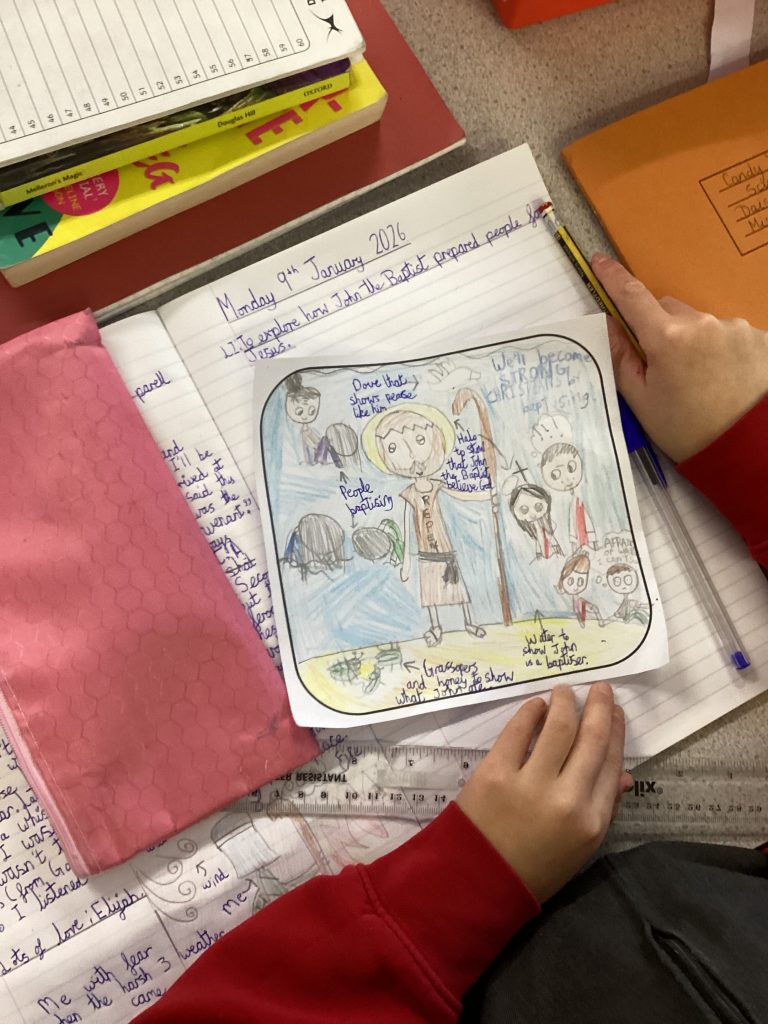
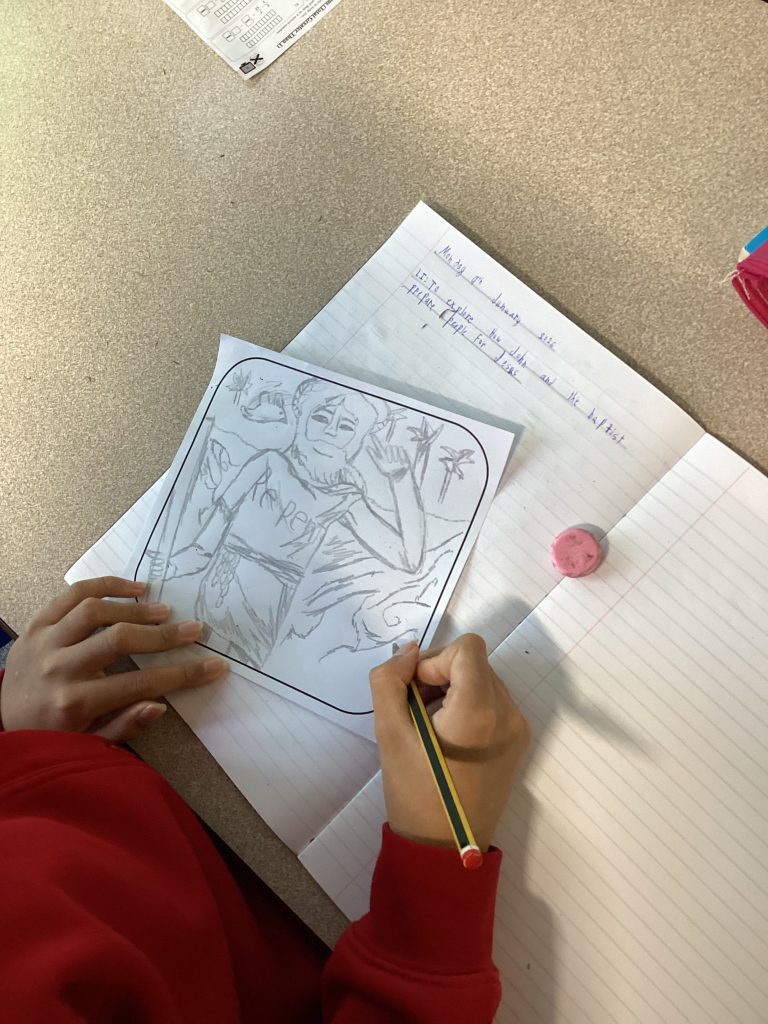
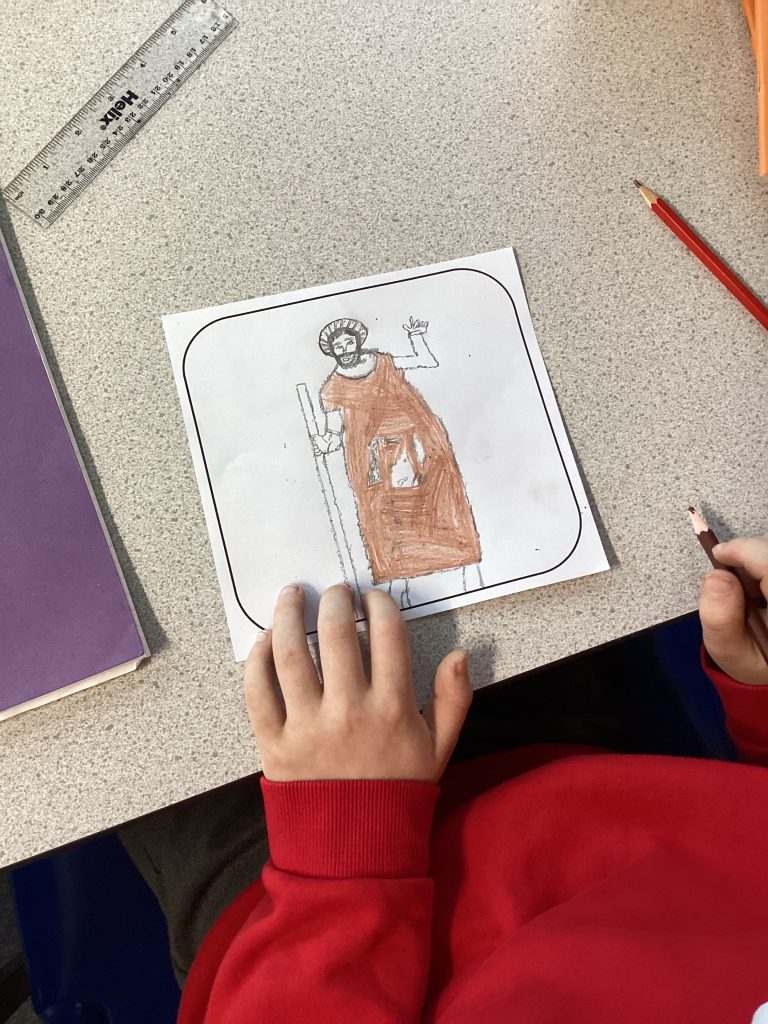
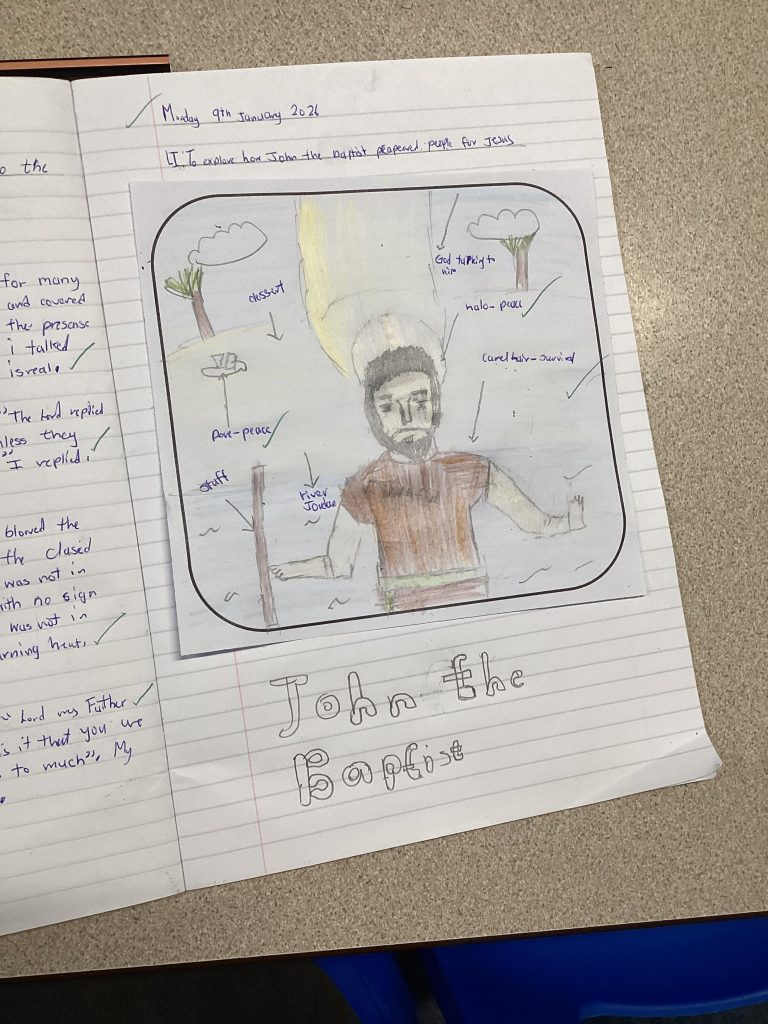
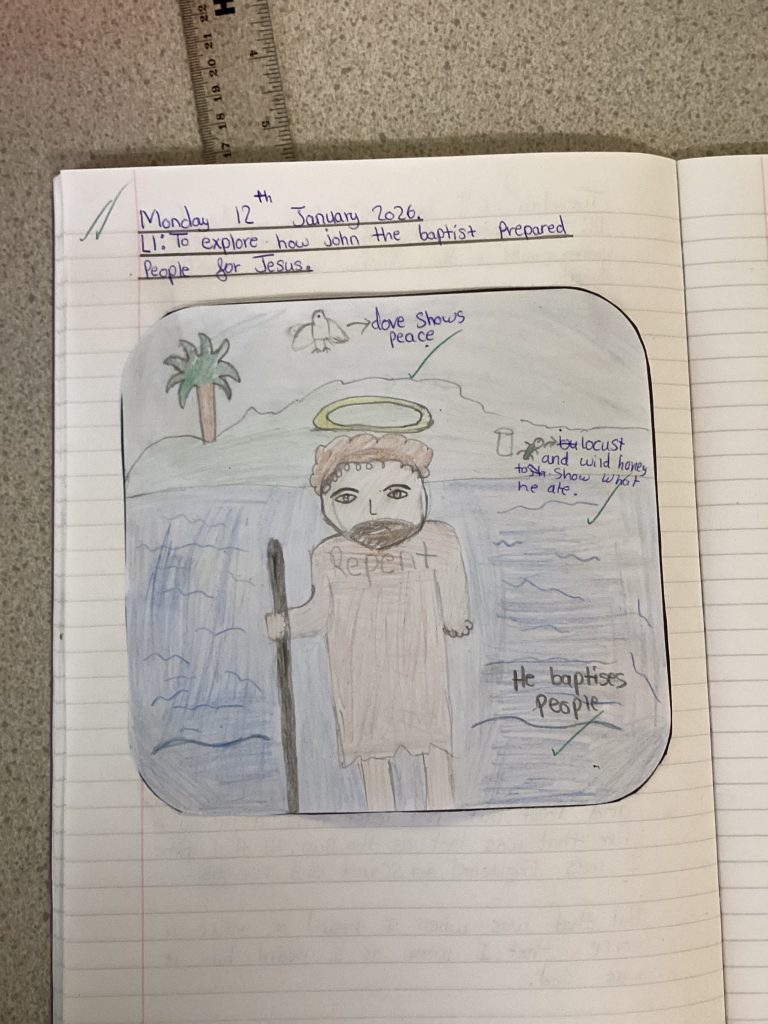
Daffodil class listened to Luke 2:22-38 and freeze framed Simeon and Anna meeting Jesus at the presentation. We discussed how we thought they would feel.
218The children heard the story of the Magi. We used different images to think about what they may have looked like and to retell the story. The children then took a journey, we discovered baby Jesus had been born!
167Today we gathered together as a school community for our carol service. Thank you to the children who led the service and our families to help celebrate advent.
284Phase 2, Year 1,2 and 3 had a fantastic Nativity play today. Great singing, wonderful acting and lovely narrating. Well done everyone!
323Year 2 drew some fantastic artwork of the angel Gabriel announcing the birth of Jesus.
300We have been learning about Advent and that during this time we wait to celebrate the birthday of Jesus. Mrs Flynn surprised Daffodil class with a beautiful knitted nativity set that has been crafted by a knitting club.
280Today year 3 and 4 were visited by Farther Silviu to discuss the meaning of advent and how it is celebrated by Christians at this time of year. The children also asked their own questions about advent.
346Thank you to Father Silviu for visiting Daffodil and Poppy class and sharing the wonderful time of Advent and the importance of hope, peace, joy and love within our world.
326Today Year 1 and 2 came together to hear Father Silviu speaking about Advent. He spoke about the meaning of the Advent candles and the children asked lots of questions.
325Daffodil class have completed our reverse advent. Thank you to our families for donating food to those in need.
330The week before Remembrance Day we created this gorgeous poppy wreath that is unique and special to remember those who died for our freedom at war.
358During our RE lesson, we learnt about Abraham and Sarah being blessed with a child. This is because Abraham showed great faith and trust in the Lord. Once they had listened to the scripture, we used freeze frames to retell the story. We focused on how Abraham and Sarah might of been feeling at this time. Year 5 created some lovely freeze frames to capture the key moments.
402During our RE lesson we heard about Abraham and Sarah being blessed with a child named Isaac after showing their strong faith in the Lord. After hearing the scripture we used freeze frames to show our understanding of the story and the emotion of the people involved.
424We have been discussing the beautiful world that God has given to us and the importance of looking after and protecting it. We have worked in teams to create posters that are displayed around school.
500Another hot-seating activity, today we became Andrew when he was chosen by Jesus to become one of Jesus disciples. Drama helps us to understand the scriptures better.
345Today, we created a collage showing how each one of us is unique and that God loves us all. We learned how God made us all different and we each have varied personalities.
402Today, we had a lovely time in our school garden, looking at the vibrant features of God’s creation and His beautiful creatures which he made. We looked at the fish and their stripes, we looked at the delicate features on leaves and we talked about how each plant is so unique.
405In previous lessons, we looked at the story of the prodigal son and how his father showed unconditional love. We then brought the family to court through hot seating to determine who showed and conditional love and who didn’t and why.
357Today, we used drama to act out the various stages of Baptism. We had godParents/Carers, water, a priest and a congregation.
The children were able to retell the various aspects of a baptism ceremony.
393We gather together today to celebrate a year of achievements, progress and success.
922As part of our R.E. curriculum, we have been learning about people in our parish. We met Amy McCormack who is our Extraordinary Minister of Communion. The children enjoyed asking lots of questions and sharing their knowledge.
950We are really enjoying learning about our parish community and role playing our parish community of Our Lady of Mount Carmel.
933During lent, Year 6 have been taking part in a guest the amount of Easter Chocolate in the jar. Our amount raised for CAFOD has yet to be counted up but I’m proud to reveal that our winner with a guess of 96 chocolates.

Today, we got to care for our school chicks. We all had a turn of holding the chicks.
1.03KSunflower class have been learning about growing and changes. We have talked about how God shows his love all around us, giving us new life.
1.04KWeek 1 – Sharing the mercy of God with others
Today, we planned and lead our collective worship focusing on sharing Mercy with others. This week we have asked everyone to show compassion, empathy and kindness with other.
We reflected about what the world is like with mercy and what it could be like if we didn’t have mercy
938